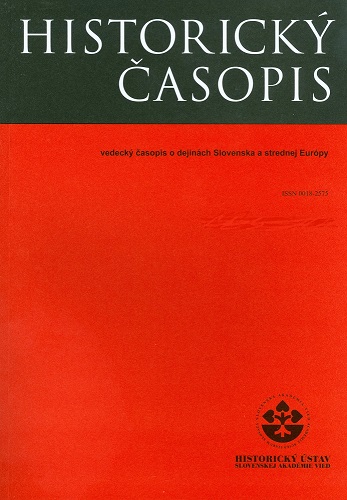
We kindly inform you that, as long as the subject affiliation of our 300.000+ articles is in progress, you might get unsufficient or no results on your third level or second level search. In this case, please broaden your search criteria.

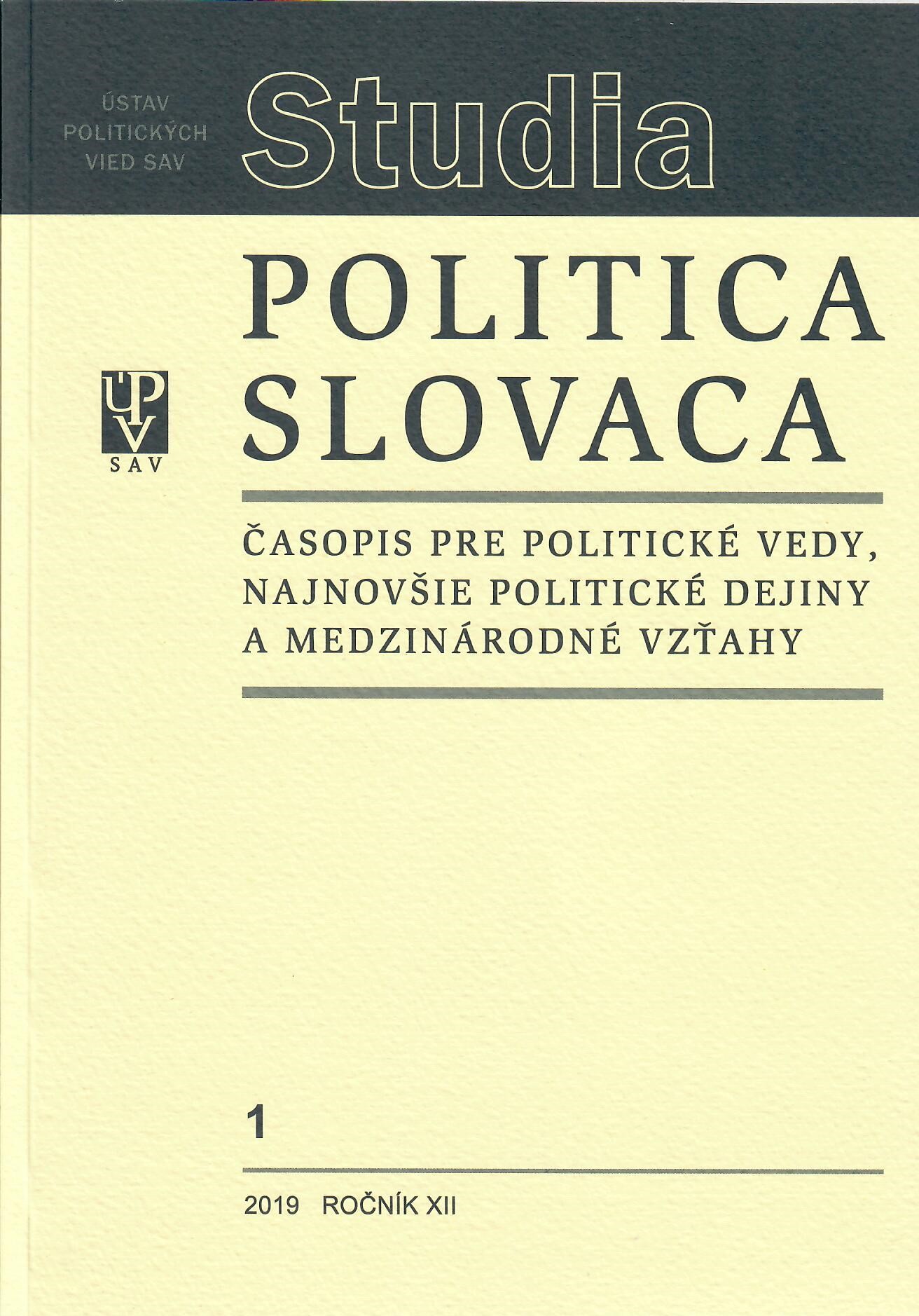
The paper investigates, whether the change of conceptualization of development with the Agenda 2030 for sustainable development transformed the institutional structure of the United Nations andwhether the Agenda 2030 is a breakthrough concept in development for humanity. Based on the discourse analysis of the resolutions of the UN General Assembly in sustainable development since the negotiations of the post-2015 agenda the paper looks at the movement of the UN GA in solving global problems and its conceptual direction towards Agenda 2030. Currently, global governance at the level of the UN GA includes peace and security as well as three dimensions of sustainable development: environmental, social and economic development. The author operates with conceptual definition of sustainable development and analyzes the change of paradigm and concept with the Agenda 2030.
More...
The study applies the French term “sortie de guerre” (exiting the war) to the issues at the end of the Great War in the Habsburg monarchy, Central-Eastern Europe and in Slovakia, which was part of this area. It pays special attention to the issues of the minorities and the search for the possible ways in which they could be protected by international law and the treaties signed after the end of World War I. Exiting the war for Slovaks cannot be considered from a narrow local perspective. It is linked to the decision-making process regarding the exiting the war at the level of the monarch and council of ministers, which is briefly considered in the first section of the study. The second section demonstrates the impact of these decisions on Slovakia. On the basis of the published documents it depicts the situation in the Slovak countryside before the ceasefire was signed on the Italian and Western fronts and the brutalisation of society resulting from the wartime suffering. It points out the danger of its unilateral identification with antisemitism. The issue of the inclusion of Bratislava in the Czechoslovak Republic points to the importance of both social matters as well as military and diplomatic solutions reflected at the local level by the city’s inhabitants. The ethnically conciliatory policy of the governor, Samuel Zoch, offered hope for the future. The third section, analyses in detail the reaction of the powers’ representatives at the peace conference to the post-war situation in Central-Eastern Europe and the solution of the issue of minorities, on the basis of documents from the Ministry of Foreign Affairs of the French Republic and the League of Nations in Geneva. The conclusion responds to some French studies concerning the “sortie de la Grande Guerre” and their view of the treaties after the Great War. At the same time, it summarises the author’s knowledge gained from the work on this study.
More...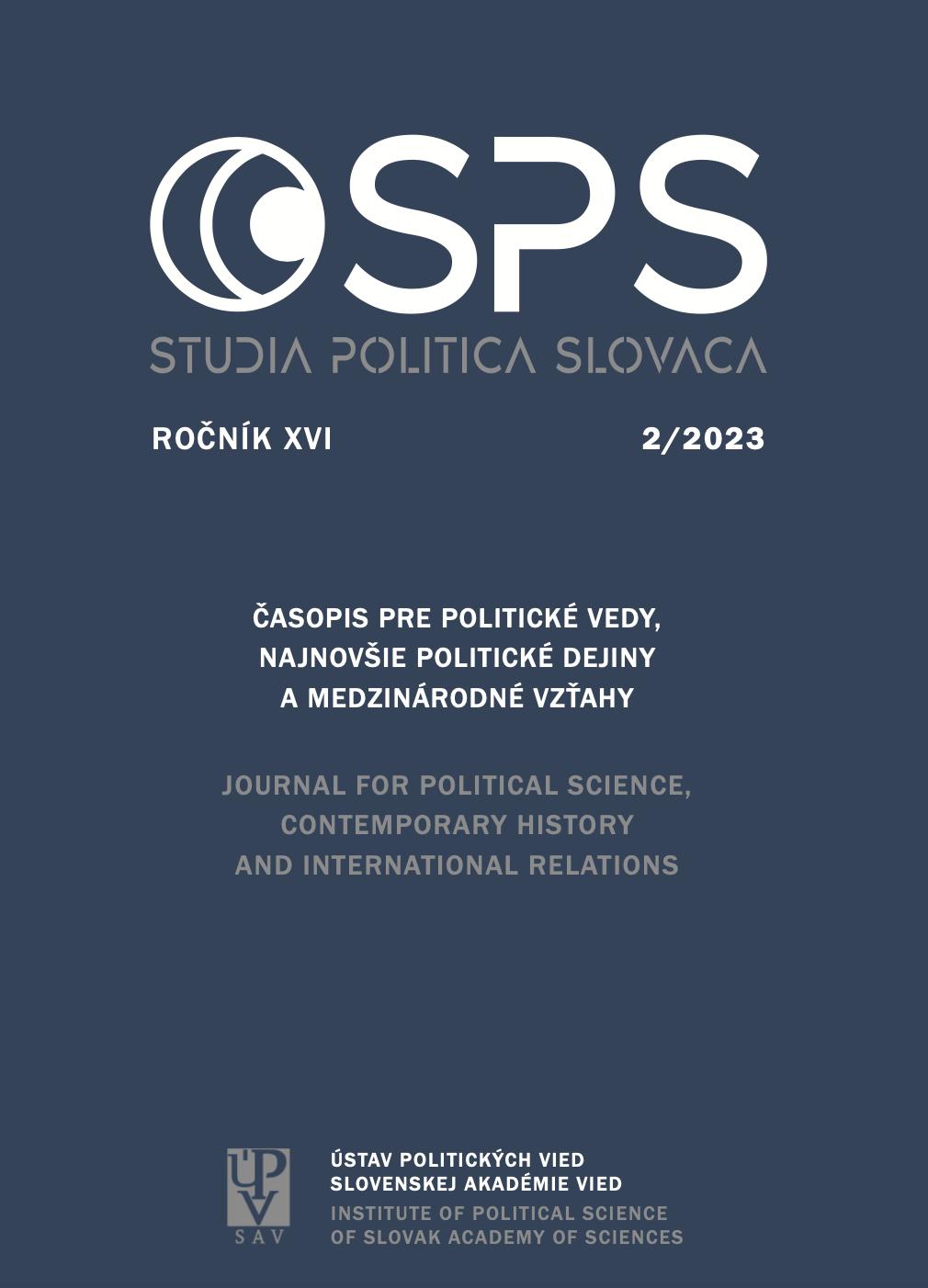
The authority of the UN Security Council (UNSC), perhaps also its legitimacy, may have been brought into question by recent events. The war in Ukraine and the inferno in the Middle East challenges its role as preserver of international peace and security, and poor or highly selective responses to mass atrocities challenges its capacity to provide protection to populations when states fail. This article focuses on organized hypocrisy as a possible organizational answer to these challenges, drawing on the theoretical framework developed mainly by Nils Brunsson. Organized hypocrisy treats talk, decisions, and actions as independent elements meeting different demands from the environment with different answers. This may help a complex political organization like the UNSC to reduce the pressure from challenges, becau- se it allows for drawing legitimacy from several loose-coupled sources. A particular important such so- urce is the UNSC’s role as the only arena of global scope where representatives from the most powerful states regularly meet for discussions and possible decisions.
More...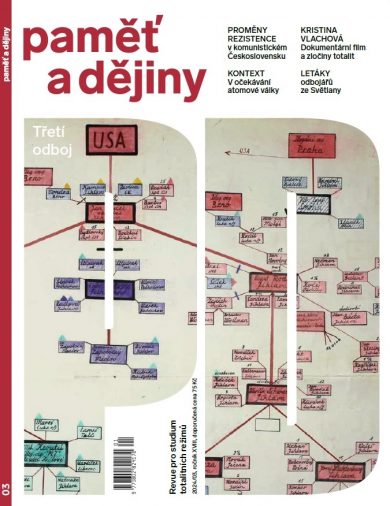
In June 2024, the Toskánský Palace in Prague hosted an international conference to evaluate a decade of research on Soviet NKVD/KGB archives in Ukraine, opened after the 2014 "Revolution of Dignity." The event, supported by various institutions, featured prominent historians and experts who discussed the impact of Soviet secret police on society, the methods of surveillance, and the role of informants. Ukrainian archivists highlighted the challenges of working during the ongoing war. Key topics included the credibility of KGB records, the use of archival documents in investigating wartime atrocities, and the digitalization of archives. The conference underscored the importance of these archives in understanding Soviet history and its contemporary implications, with plans to publish the findings in a book.
More...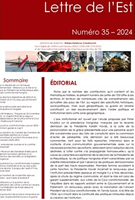
This article examines the crimes perpetrated by the Russian Federation since the launch of its so-called “special operation”, of which Ukrainian civilians were the first victims. The author reflects on the correct characterization to adopt for such crimes, with regard to the prescriptions of international criminal law and international humanitarian law, by considering the different characteristics of crimes against humanity. The article also explores the challenges of international criminal justice, as well as possible ways of reinforcing the mechanisms of international law.
More...
Although theorized long ago, restorative justice is back in actual discussions because of its promotion by numerous international organizations, prompting the author to explore the possibility of using this mechanism for crimes committed during the war in Ukraine. In light of its consequent promotion in European systems, the author explores the philosophical considerations of such justice in order to draw lessons on its advantages and limitations, before considering its application in the Ukrainian case.
More...
The link between sovereignty and international law found its legal embodiment in the principle of sovereign equality of states. The principle of sovereign equality of states is a complex principle, in two ways: both of its components can be considered independent principles. The combination of these elements gave rise to an international legal phenomenon - the principle of sovereign equality of states. It assumes that any state must fully fulfil its international obligations. Within the framework of this principle of sovereign equality, sovereignty itself has regained its definition in the relations of international law. These relations, as a rule, are established between the subjects of international law, i.e. states, but they can also be between states and organizations or only between intergovernmental organizations. The essence of this principle is the rule, according to which the maintenance of international law and order is possible and can be ensured only with full respect for the legal equality of the participants. This means that each state must respect the sovereignty of the other participants in the system, that is, their right on their own territory to exercise legislative, executive, administrative and judicial power without any interference from other states, as well as to exercise independently external politics.
More...
La création de l’État géorgien remonte au IIIe siècle avant Jésus-Christ. À partir du XVIIIe siècle, la Russie tsariste assume le rôle de puissance « protectrice » et, en 1801, annexe la Géorgie. Après la Première Guerre mondiale, l’État démocratique de Géorgie connaît trois ans d’indépendance (1921-1924) avant d’être conquise par « l’armée rouge » et incorporée, d’abord dans la République soviétique socialiste fédérale de Transcaucasie et, ensuite, dans l’Union soviétique. Lorsque l’Union soviétique commence à se désintégrer, la Géorgie engage son chemin vers l’indépendance. L’analyse des rapports de l’Assemblée parlementaire du Conseil de l’Europe5 permet de conclure qu’à partir de 2003, la Géorgie a pratiquement commencé l’exécution des obligations prises lors de son adhésion au Conseil de l’Europe en 1999.
More...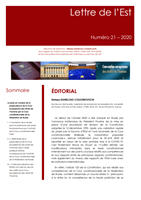
En juillet 1989, Mikhaïl Gorbatchev, Secrétaire général du Comité central du Parti communiste de l’Union soviétique, déclarait devant l’Assemblée parlementaire du Conseil de l’Europe que «la maison européenne commune est une communauté de droit». Son discours historique reflétait la volonté commune des États européens d’affermir la paix et la stabilité. La disparition de l’Union des républiques socialistes soviétiques (ci-après URSS) en 1991 a marqué la fin de la division de l’Europe, offrant enfin une chance aux États de ce continent de s’unir dans le but de créer «un vaste espace de sécurité démocratique». La communauté européenne a réellement pris corps par l’adhésion des nouveaux États indépendants au système de la Convention de sauvegarde des droits de l’homme et des libertés fondamentales adoptée le 4 novembre 1950 à Rome (ciaprès Convention). En rejoignant le Conseil de l’Europe, les États contractants ont non seulement reconnu le principe de la prééminence du droit, mais ils ont surtout offert à leurs citoyens une protection effective de leurs droits fondamentaux, participant de ce fait à l’indivisibilité et à l’universalité des droits de l’homme.
More...
Determining the national law that will apply to a legal relationship with an element of foreign law is a central objective of private international law. This involves the use of conflict-of-law rules to identify the most appropriate law, given the nature and specific characteristics of the legal relationship in question. Determining the competent court to resolve disputes involving elements of foreign law is essential for the functioning of the international legal system. This objective includes identifying the court that has jurisdiction and can deliver a valid judgment in an international context. The rules of international jurisdiction determine which national courts are competent to hear a cross-border dispute. These rules are essential for avoiding conflicts of jurisdiction and ensuring the efficient resolution of disputes. Ensuring that judgments given in one state can be recognized and enforced in another state is a crucial objective of private international law. This mechanism prevents the need for retrials in other jurisdictions and ensures legal continuity and stability. The procedures and criteria by which foreign judgments are recognised and enforced vary between jurisdictions, but generally include verification of: the competence of the court that issued the judgment; respect for the right to a fair trial; and the conformity of the judgment with the public policy of the requested State. Ensuring respect for the fundamental rights of the parties involved in international legal relations is another major objective. This includes guaranteeing a fair trial, respecting the principle of non-discrimination and ensuring the protection of personal data. Private international law must ensure that conflict-of-law rules and judicial procedures respect the fundamental rights of the persons involved, including the right to a fair trial, non-discrimination and the protection of personal data. Promoting coherence and uniformity in the application of international legal rules through international conventions and treaties is essential to reducing conflicts of laws and facilitating international cooperation.
More...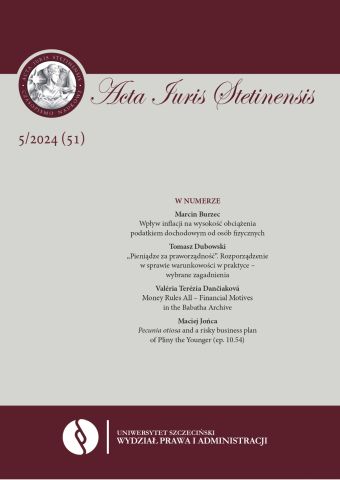
Regulation (EU, Euratom) 2020/2092 of the European Parliament and of the Council of 16 December 2020 on the general system of conditionality to protect the Union budget entered into force in January 2021. It essentially aims to establish the mechanisms necessary to protect the Union budget in the event of violations of the rule of law in the Member States. As such, it becomes, in simple terms, an instrument that makes the transfer of EU funds conditional on member states’ respect for the rule of law. The main aim of this study was to assess the application of the conditionality regulation in practice from the point of view of the protection of the rule of law and its role in this regard. The considerations presented are aimed at determining whether the practical implementation of the regulation on conditionality confirms its “usefulness” for strengthening the rule of law in the Union’s member states. The analyses undertaken should thus – with reference to the leitmotif of the Volume – make it possible to determine to what extent “EU money”, within the framework of the procedures established by the Regulation, effectively strengthens the rule of law by motivating member states to behave in a certain way. In this context, the dogmatic-legal method (combined with a case study) was made the leading research method. At the same time, the article was divided into three parts, including the presentation of the genesis and analysis of the purpose and main objectives of the regulation in the context of protecting the rule of law, cases of its practical application, and the effects of the implementation of the regulation, along with their evaluation. The analyses conducted led to the following main conclusions:– the conditionality regulation is an instrument that protects the budget and financial interests of the European Union – as such, however, it protects them from violations of the rule of law, and in this light, respect for the rule of law becomes the basis and prerequisite for effective implementation of the EU budget in accordance with the principle of sound financial management;– the regulation provides relatively clear criteria for the implementation of the budget protection procedure and a relatively clear procedure for the application of protection measures;– it can be concluded that the conditionality mechanism provided for in the regulation, when applied consistently and rigorously, is likely to strengthen the rule of law in EU member states – the case under review seems to confirm this thesis.
More...
Regulation (EU, Euratom) 2020/2092 of the European Parliament and of the Council of 16 December 2020 on a general regime of conditionality for the protection of the Union budget entered into force in January 2021. It seeks to establish mechanisms necessary to protect the Union budget in the event of breaches of the rule of law in the Member States. In simple terms, the Regulation thus becomes an instrument making the transfer of EU funds conditional on Member States’ respect for the rule of law. The aim of this study is to assess the application of the Regulation in practice from the point of view of the protection of the rule of law and its role in this respect. The discussion aims to determine whether the implementation of the Conditionality Regulation confirms its “usefulness” for strengthening the rule of law in the EU Member States. This analysis should thus allow us to determine to what extent the “EU money”, in the framework of the procedures established by the Regulation, effectively strengthens the rule of law by motivating Member States to certain behaviours. In this light, the investigation of the law in force is used as the main research method herein. The article is divided into three parts covering the origin and the analysis of the purpose and main assumptions of the Regulation in the context of the protection of the rule of law, cases of its practical application and the effects of the implementation of the Regulation together with their assessment. The analysis has led to the following main conclusions:1. The Conditionality Regulation is an instrument that protects the budget and financial interests of the European Union – as such it protects them against violations of the rule of law and, in this light, respect for the rule of law becomes the basis and necessary condition for the effective implementation of the EU budget in accordance with the principle of sound financial management.2. The Regulation provides for relatively clear conditions and criteria for implementing the budgetary protection procedure and a relatively clear procedure for applying safeguard measure.3. The conditionality mechanism provided for in the Regulation, with its consistent and rigorous application, has a chance to strengthen the rule of law in the EU Member States – the case under discussion seems to confirm this thesis.
More...
This article focuses on examining the legal regulation of digital currency circulation inthe Russian Federation. The author studies the main provisions of the Federal Law of July 31, 2020No. 259-FZ “On Digital Financial Assets, Digital Currency and on Amendments to Certain LegislativeActs of the Russian Federation”, which enshrines the normative definition of the concept and thebasic principles of digital currency circulation in the Russian Federation. Specific types of transactionswhere the use of digital currency is permitted are identified, and the introduction of the digitalruble, a national digital currency issued by the central bank, which is intended to play a significantrole in settlements is defined. The article concludes that the existing conceptual framework containscertain contradictions and suggests that the terms “private digital currencies” and “public digitalcurrencies” should be formally defined and established in legislation.
More...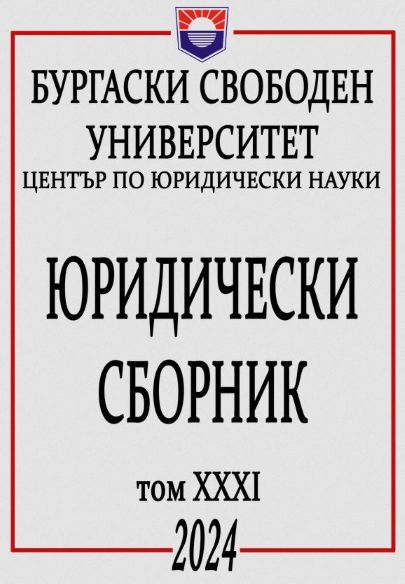
През декември 2023 г. в чл. 150, ал. 2 от Конституцията (КРБ) бе уредена въз- можност всеки съд да сезира Конституционния съд (КС). За по-малко от 6 месеца (към 15 юни 2024 г.) в Конституционния съд (КС) постъпиха общо 8 искания от съдилища, различни от ВКС/ВАС, повечето от които бяха отклонени1, основно поради неспазване на изискването на чл. 18, ал. 3 от Пра- вилника за организация на дейността на КС (ПОДКС)2: искането да съдържа „аргу- ментирана преценка на приложимото право, включително относно последиците от действието на правото на Европейския съюз, когато оспорената разпоредба или акт е в приложното му поле”. Поради това имат много голяма практическа важност въпросите какво е длъ- жен да направи съдът ipso jure по всяко дело, преди, а и за да може, да сезира КС, и в частност в какво се изразяват изискванията за аргументирана преценка на приложимото право (Първа част) и за аргументирана преценка относно после- диците от действието на правото на ЕС (Втора и Трета част).
More...
The article is devoted to some theoretical problems in the application of European legislation in the field of the protection of the migrants’ rights. In search of answers to the questions, attention is paid to the topic of the general principles of law, the application of which is considered as a condition for the effectiveness of the legal system and guaranteeing the protection’ right. Conclusions are made regarding the legal framework of the rights and obligations of migrants according to their legal status.
More...
Due to the rising sea levels, many states have begun seeing their coastlines continually recede, while some island states face the total loss of their landmass. This issue was never addressed in international treaties and leaves a grey area. This paper will examine the current efforts of the International community to create a rule that would recognise the existing territorial waters and the connected maritime zones as well as the pushback against that new interpretation.
More...
The article presents the origin and development of the Common Fisheries Policy (CFP), which was first formulated in the EEC Treaty of Rome. It was initially associated with the Common Agricultural Policy, but subseaquently acquired its own form. The aim of the policy is to ensure the sustainability of EU fisheries in environmental, economic and social terms.
More...
This article examines the concept of vulnerability in Asylum and Refugee law. Its purpose is to differentiate between the vulnerable groups by outlining their key features. The article focuses on the importance of accurate and prompt identification of vulnerable persons among asylum seekers and refugees.
More...
The article examines fundamental issues related to the need to create a purposeful common policy in the field of food security at the global level. Main features of the institutional method for food security research are presented. The need to establish generally accepted and legally regulated norms and standards in the food security system is substantiated.
More...